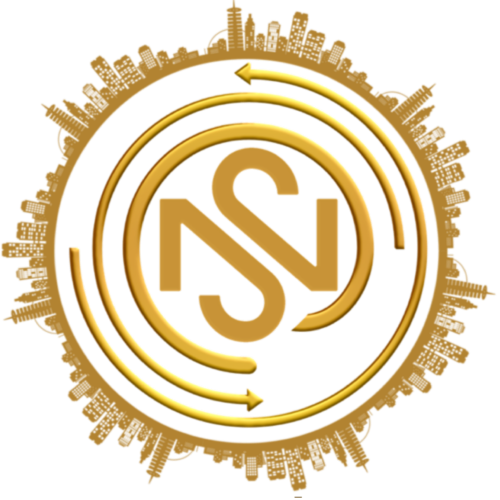Understanding the Usage History of Your Phone Number from Number Shack
Covers the following: recycled number, phone number history, ported number, NPAC, CLNPC, number usage, clean number, prior ownership
SYSTEM ADMIN.
Last Update 4 bulan yang lalu

When you purchase or port a phone number through Number Shack, such as a 416 number (e.g., 416-800-1085) or other popular Canadian area codes like 647, 905, 604, or 778, you may wonder if it’s newly issued (never used) or recycled (previously assigned). This article explains why most, if not all, phone numbers sold by Number Shack are assumed to be recycled, with specific context for high-demand area codes like 416, and how you can check their usage history independently through your carrier or other methods.
Why Most Phone Numbers Are Assumed Recycled
Most phone numbers available through Number Shack, especially in popular Canadian area codes, are assumed to be recycled due to high demand and limited number availability. Here’s why:
- Number Exhaustion: Canadian area codes, particularly in major cities, have been in use for decades, leaving few unassigned numbers. For example:
- 416 (Toronto): Introduced in 1947, the 416 area code has nearly exhausted its 7.9 million possible numbers due to Toronto’s large population and business activity.
- 647 (Toronto): Added in 2001 as an overlay for 416, it’s also heavily used and largely recycled.
- 905 (Greater Toronto Area): Serving areas like Mississauga and Hamilton since 1993, it faces similar exhaustion.
- 604 and 778 (Vancouver): These British Columbia area codes, introduced in 1947 and 2001, are in high demand, with most numbers recycled.
- Recycling Process: When a number is disconnected (e.g., due to account cancellation), it enters a mandatory “aging” period (typically 90 days, per Canadian Radio-television and Telecommunications Commission [CRTC] rules). After aging, the number is returned to the carrier’s pool for reassignment, making it recycled.
- High Demand in Urban Areas: Major cities like Toronto (416, 647, 905) and Vancouver (604, 778) have intense demand for phone numbers, leading to frequent reassignment of recycled numbers.
- Porting Activity: Many numbers, especially in these area codes, have been ported between providers, tracked in the Canadian Number Portability Administration Center (NPAC) database, indicating prior us.
How to Check Your Phone Number’s Usage History
Number Shack does not have the ability or authorization to verify the usage history of any phone number, including those in the 416, 647, 905, 604, or 778 area codes, as we are not a member of the Canadian Local Number Portability Consortium (CLNPC) or an authorized user of the Canadian NPAC database. Instead, you can take these steps to check your number’s history independently:
- Contact Your Current Carrier:
- If you’re using your number with a carrier (e.g., Bell, Rogers, Telus), contact their support team directly to request a history check. Provide:
- The full phone number.
- Your account details (e.g., email or account ID).
- Authorized carriers can query the Canadian NPAC database, managed by iconectiv under the CLNPC, to confirm if the number was ported (indicating prior use) or has no porting record.
- Note: The NPAC tracks only ported numbers. If your number was assigned locally without porting, the carrier may check their internal records for prior assignments.
- Perform a Google Search (Before or After Purchase):
- Search the full 10-digit number (e.g., 4165555555 or +14165555555) on Google or other search engines to check for prior use.
- Look for hits like old business listings, social media profiles, or online directories that may indicate the number was previously assigned.
- This method is not definitive but can provide clues, especially for numbers listed publicly in the past.
- If you’re considering purchasing a number from Number Shack, perform this search beforehand to assess its history.
- Understand the Canadian NPAC Database:
- The Canadian NPAC database, overseen by the CLNPC, tracks ported numbers across Canada. It records:
- The current service provider and Location Routing Number (LRN) for call routing.
- Porting history (e.g., dates and past providers).
- Only authorized carriers (e.g., Bell, Rogers, Telus) can access the NPAC. Number Shack cannot check this database, so you must contact your carrier for NPAC queries.
- If your number has no NPAC record, it may not have been ported, but it is still likely recycled due to the high demand for area codes like 416, 647, 905, 604, and 778.
Important Notes
- All Numbers Assumed Recycled: Most, if not all, phone numbers sold by Number Shack, especially in high-demand area codes like 416, 647, 905, 604, and 778, are recycled. While a number could theoretically be new, Number Shack cannot verify this, and you should assume prior use. Recycled numbers are fully functional but may receive calls or texts intended for a previous user.
- Privacy Restrictions: Canada’s Personal Information Protection and Electronic Documents Act (PIPEDA) prevents carriers or the NPAC from disclosing prior ownership details. You can only confirm if a number was ported or recycled.
- Number Shack’s Role: Number Shack cannot and will not verify the usage history of any phone number, as we lack access to the NPAC or carrier records. We provide numbers as-is, assuming they are recycled.
Need Further Assistance?
For questions about unwanted calls/texts or your number’s history, contact your current carrier’s support team directly, as Number Shack cannot assist with verifying number history.
For general questions about your Number Shack purchase:
- Phone: 416-292-0800
- Email: [email protected]
- Support Ticket: Submit via our support portal.
- Live Chat: Available at chat.numbershack.com
In a connected world, a phone number is more than digits - it’s a bridge to opportunity. - Number Shack

